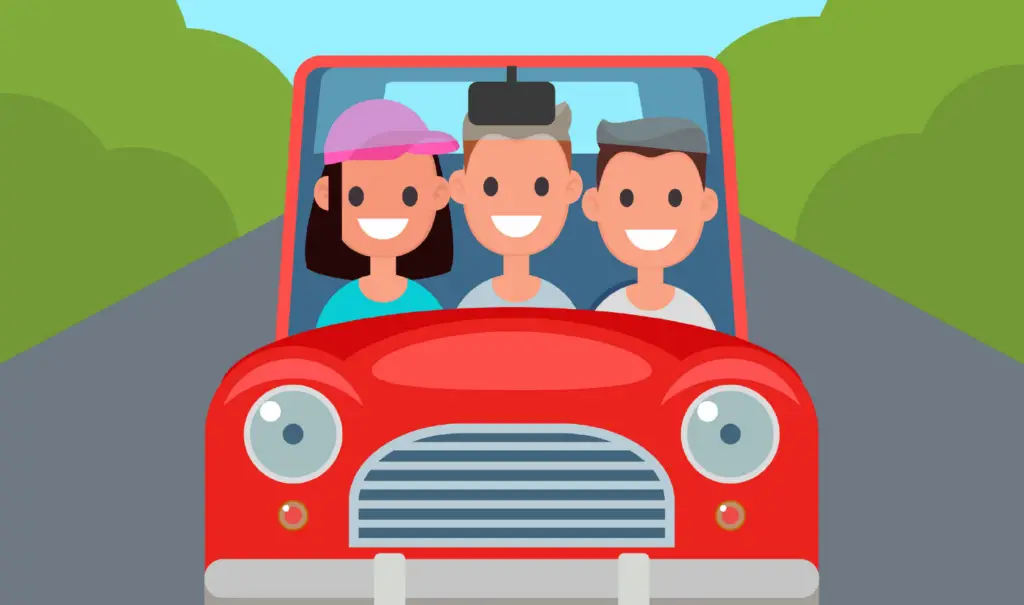In 2015, about 7.6 million cars were in carpooling programs globally. This number rose to 23.1 million in 2015 and is projected to reach an estimated 45 million in 2025. These numbers evidently show the growing number of people engaging in carpooling.
You’ve probably carpooled yourself or heard about it sometime from a friend, neighbour or the internet. If you are among the few who wonder what carpooling is all about, here is a short brief of what it is.
What is carpooling?
Used as an economic coping strategy during the second world war, carpooling is a concept where two or more people going in the same or similar direction share a car ride. Usually, such rides are arranged between people who know one another such as co-workers, schoolmates or members of the same social circle.

Carpoolers mostly agree to go in one member’s car on one day and go in another member’s car on another day till all members have taken their turn and then the cycle begins again. This could be done on a regular basis like going to work every day or it could involve occasional trips like having a picnic.
In recent times, carpooling has evolved beyond being just a budget-friendly strategy to a necessity to keep our roads decongested and less polluted. Car riding companies such as Uber have also joined in the rave and introduced carpooling platforms like UberXshare.
Let’s look at some of the reasons why carpooling is great for the environment.
6 benefits of carpooling on the environment
1. carpooling makes you Use less energy
With carpooling, you get to use less gasoline. Four people can use the same quantity of fuel that one person would usually use saving them some money in the process. In cases where the vehicles used in carpooling are electric vehicles, more energy is being conserved when people share a ride.
2. carpooling allows for Less carbon emissions
Transportation accounts for 27% of greenhouse gas emissions in the US. Personally owned cars are major contributors to this figure. Carpooling means that you get to share a ride with one or more people. This means there is one less car on the road.
Fewer cars on the road amount to less emission of greenhouse gases in our environment. Cool right?
There are lots of carpooling companies available to join. You can also make private arrangements with neighbours and colleagues on how you can carpool.
3. Carpooling is Good for your health
Anything that helps reduce carbon emissions is as good for the health as it is for the environment. Carpooling helps reduce carbon dioxide emissions which is detrimental to human health.
Air pollution is one of the leading causes of respiratory diseases and is also linked to heart disease and lung cancer, accounting for over 43% of COPD deaths globally. Carpooling can help reduce this effect by making the air cleaner due to fewer automobiles on the road.
4. carpooling Reduces traffic congestion
Reducing congestion is a great way to reduce carbon emissions, air pollution and noise pollution. You won’t have to worry about incessant car honking, cursing or bother about the noise generated from too many vehicles running at once if everyone had a carpooling group.
Carpooling means that more vehicle occupants are sharing a ride. This is an effective way to control traffic and its effect on greenhouse gas emissions.
5. carpooling helps roads last longer
Let’s imagine a road last for 5 years before requiring repairs and another road created within the same period already had 3 repair sessions. Imagine how much resources, time and emissions those 3 repair sessions would have cost.
Though not highly significant compared to other factors, cars contribute to road damage. Of course, more cars on a road will have a higher effect on the road than fewer cars. With carpooling, the possibility of having fewer cars on the road is higher which will lead to longer-lasting roads.
6. carpooling reduces roadside parking and allows for more Parking spaces
One of the most common complaints of people in traffic is the lack of parking spaces. Cars are parked along streets, on the sidewalks and even in the backyards of houses. This is also a major cause of traffic congestion on the roads, especially during peak hours.
With carpooling, people park their cars at home leaving more space for road users. You can get to go places more frequently by finding more spaces for your car when coming back home. You also do not have to worry about parking your own car because there will be more parking spaces available for cars to park.
Conclusion
Carpooling has a lot of benefits for the environment and human health. Friendships are formed and relationships are created during carpooling. A number of people get to enjoy social interactions and gather information during carpooling.
Whether you are trying to just save money or you are big on saving the planet, carpooling is one practice that you can’t go wrong with. Feel free to start carpooling for the environment; Just make sure to not join the group if you get sick to avoid getting others infected.
Also read: 5 Reasons Why Leasing a Car is Better Than Buying
Related posts:
- Harnessing the Power of the Sun: A Guide to Solar Installation - February 12, 2024
- Vacuum Trucks: The Unseen Heroes of Waste Management and Their Environmental Benefits, Featuring McDonald Farms - December 11, 2023
- Satellites And Climate Adaptation: Solutions From Space - December 1, 2023







zovirax 200mg lyrica online lyrica 150 mg capsule 300 mg seroquel cost trazodone strattera prices south africa bactrim tablet online
zovirax cheapest price